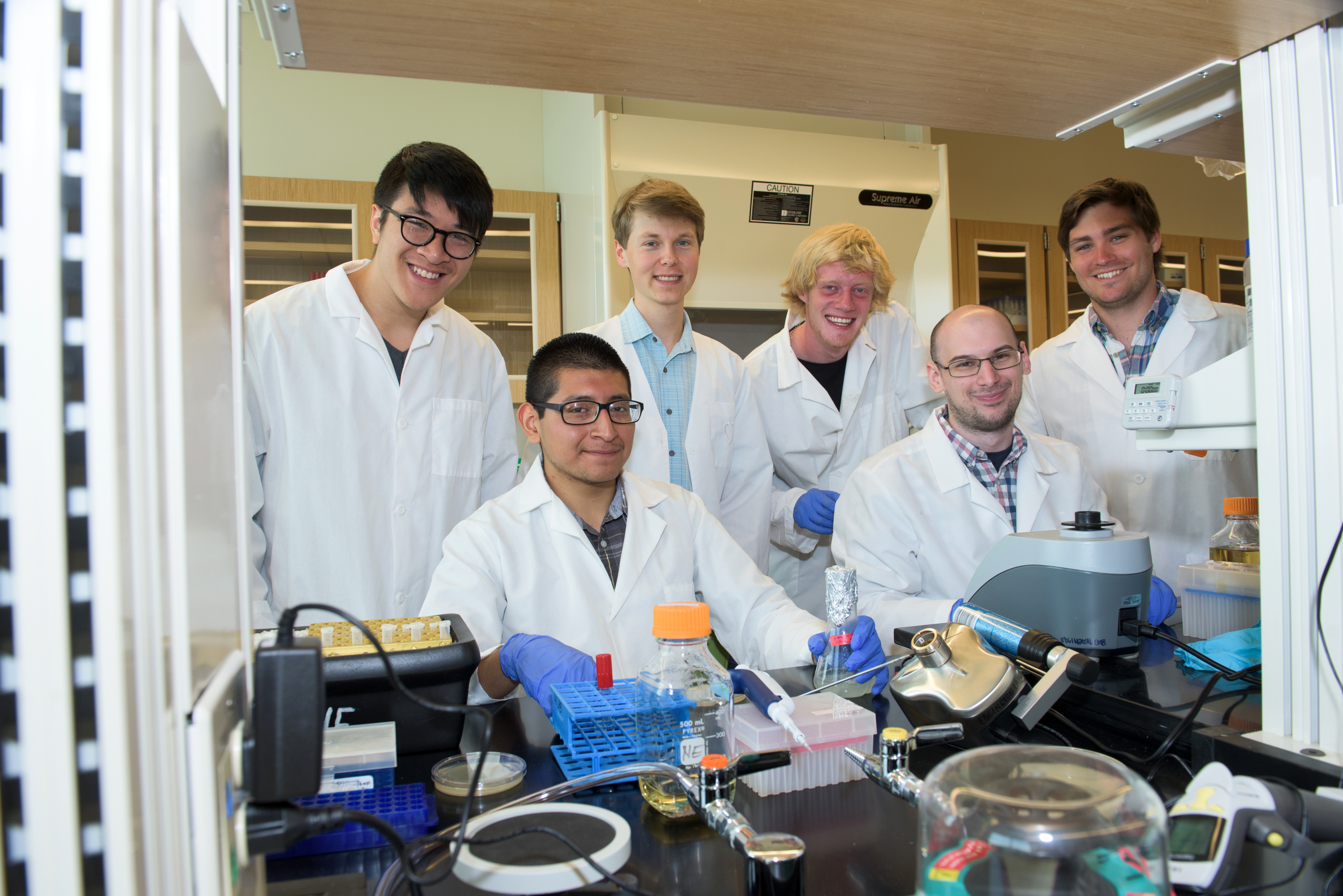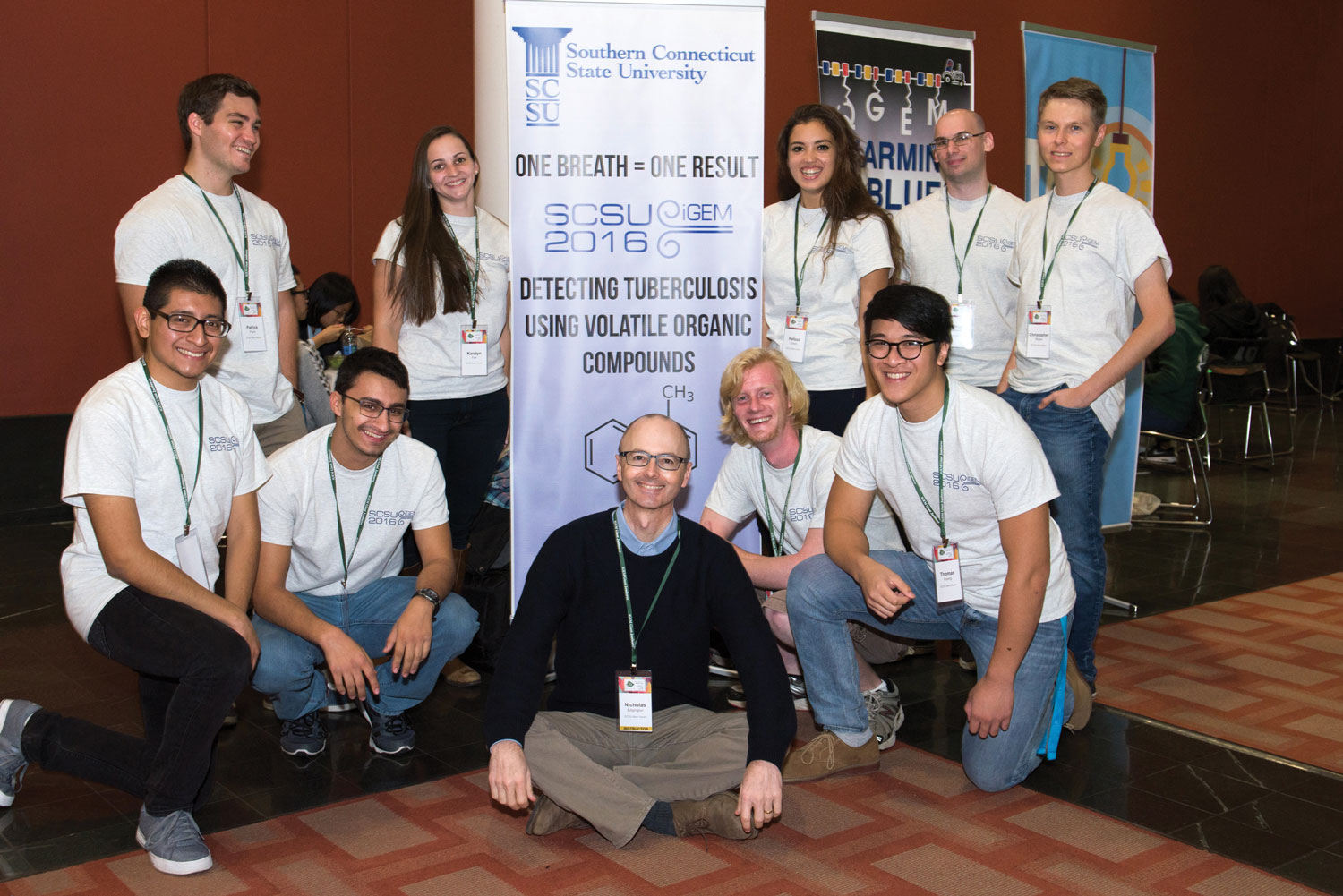
6 minute read
Owl Update
by Beth Levine
Thomas Hoang, ’18,Graduate Research Fellow, University of California San Diego Health, Gutkind Laboratory, Moores Cancer Center
“IF IT WEREN’T FOR THE STRONG SUPPORT I RECEIVED during my undergrad days at Southern, I would be nowhere close to where I am now in my profession,” says Thomas Hoang, ’18.
And where exactly is Hoang, 29, now? On the other side of the country pursuing a doctorate in biomedical sciences at the University of California San Diego (UCSD) with a research focus on head and neck cancer prevention. Hoang also is studying the biological events that occur when a precancerous oral lesion transitions to cancer. He is slated to graduate in summer 2025.
But let’s back up a bit. Hoang, a first-generation Vietnamese-American who grew up in East Haven, enrolled at Southern in 2013, following in the footsteps of his uncle and cousin who had already graduated from the university. (Hoang is the first in his immediate family to attend college.)
After trying several majors, he realized he envied friends who were studying biology and chemistry. “Every time they talked about their work, I would respond with, ’I wish I was doing what you guys are doing,’” he recalls. Soon enough, he switched his focus to biology, which eventually morphed into a biotechnology major with a minor in chemistry.

Life at Southern was busy: “Going to classes, going to the lab, studying, tutoring, attending Global Brigades [international volunteer] meetings, more studying, and spending time with my friends. I hardly got any sleep,” says Hoang, who tutored students in biology, chemistry, and statistics at what’s now Southern’s Center for Academic Success and Accessibility.
“I was happy to do it because I enjoyed teaching a lot, and I found it to be a really rewarding experience. I like seeing others succeed,” he says.
Traveling with Global Brigades to Nicaragua to volunteer with medical and public health projects also was gratifying. Hoang and classmates worked with medical professionals who were running free healthcare clinics and helped construction workers build clean water and sanitation infrastructures for several Nicaraguan communities.
“It was one of the most amazing and meaningful experiences of my life. We were like a family,” he says.

Research was a cornerstone of Hoang’s undergraduate experience. He joined a team of Southern students who particated in the iGEM (International Genetically Engineered Machine) synthetic biology competition. Working under the guidance of Nicholas Edgington, professor of biology, the team brought home a medal for designing a biosensor to detect tuberculosis. Hoang continued to work with Edgington through a Howard Hughs Medical Institute-supported program that explores the remarkable diversity of the bacteriophage (viruses that infect bacteria) population.
Hoang’s real-world research was furthered when he was accepted for a summer research internship with Yale University, working in the laboratory of Andre Levchenko, professor of biomedical engineering. There, Hoang was introduced to the world of cancer cell biology, which remains his research topic today.
When Levchenko offered Hoang the opportunity to continue working in the lab after the internship ended, Southern helped make the dream a reality. Christine Broadbridge, professor of physics who is now also the executive director of research and innovation at Southern, helped Hoang find financial support through the BioPath Program to continue working in the lab during the subsequent fall and spring semesters.
After Hoang graduated, Levchenko offered him a full-time job in biomedical research — and Hoang set his long-term sights on pursuing a doctorate.
“Almost everything I did from that point on was with the purpose of fostering the personal and professional development that I felt was necessary for me to be admitted into a good program,” he says.
After two years working with Levchenko, Hoang was accepted into UCSD. His career goal: to design, develop, and manage clinical trials in the cancer oncology arena.
Today Hoang spends 10-12 hours a day in the lab. Limited free time is spent in the gym or swimming. This Northeasterner has embraced the California lifestyle, dabbling in surfing, ocean swimming, hydrobiking, and relaxing on the beach.
But one thing he misses? “New Haven-style pizza, number one in the country in my unprofessional opinion. San Diego's pizza just cannot compare,” he says.
His campus memories are equally fond. “I think about my time at Southern a lot; I even wish I could relive it,” says Hoang. He makes time to connect with former Southern classmates and professors when he visits Connecticut. “I just simply cannot explain with words how meaningful that time was to me,” he says. ■
It Takes A Village
THOMAS HOANG KNOWS HE IS STANDING ON THE SHOULDERS OF HIS SOUTHERN MENTORS. “I want to personally thank all the people who helped me at Southern. Together, they were an extraordinary group,” he says.
• Eric Anderson, a part-time faculty member in the Department of Physics, “who taught me how to think more critically and with depth instead of just memorizing facts.”
• James Kearns, associate professor of chemistry, “who spent many late-night hours teaching/mentoring me and inspired me to start working in a research lab.”
• Nicholas Edgington, professor of biology, “who trained me and took care of me during every step of my journey. I owe everything to Dr. Edgington. He has the patience/tolerance of a saint.”
• Christine Broadbridge, executive director of research and innovation at Southern, “who provided me with financial support through the BioPath Program to continue working at Yale as a visiting research student during the academic year.”
• Kathleen De Oliveira, director, and Crystal Cyr, associate director, “for recruiting me to work at the Academic Success Center, [now the Center for Academic Success and Accessibility Services.] I also received a lot of support from Sal Rizza, [director of orientation, transition, and family engagement,] when I worked at the center.”
• Michael Schindel, assistant director of the Office of International Education, “who was like a big brother to me during my time volunteering with the Global Brigades organization.”
• Joe Bertolino (then president of SCSU) “for his leadership and support of my research activities.”
• I also received inspiration, mentorship, and support from the following professors: Therese Bennett [mathematics], Jason Lawrence [English], Raymond Mugno [mathematics], Jiongdong Pang [chemistry], David Peruta, ’05, [mathematics], Elizabeth Roberts [associate dean for STEM], Todd Ryder [chemistry], John Scheuermann [mathematics], Patrick Starvaggi [mathematics], Jeffrey Webb [chemistry], Jonathan Weinbaum [biology], and Winnie Yu [computer science].










